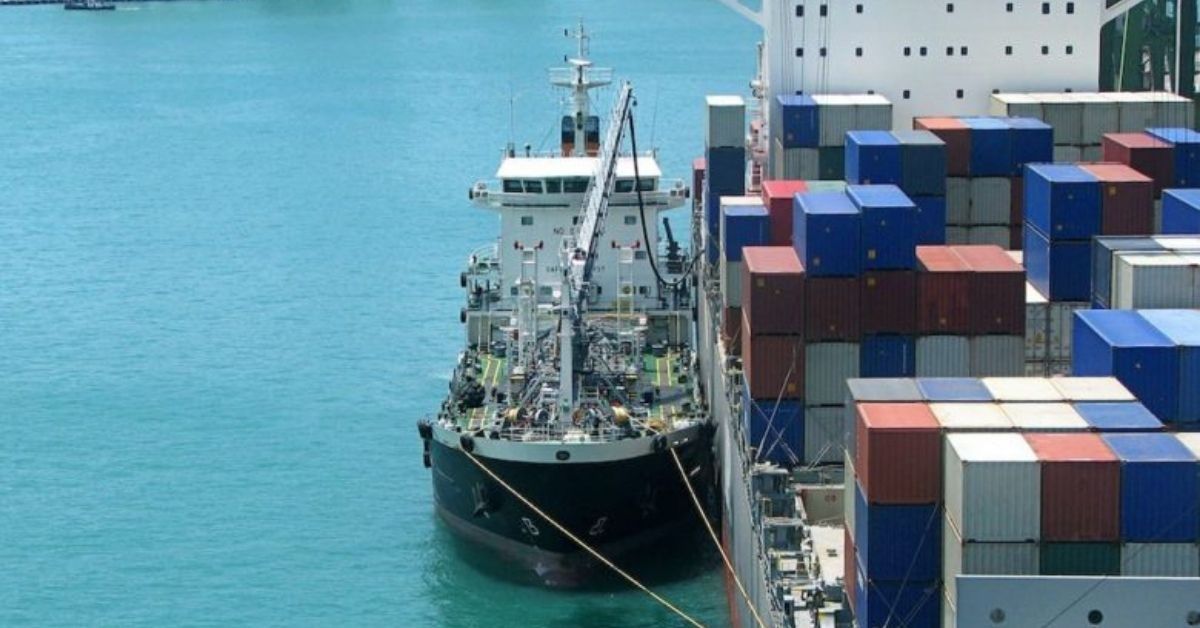Estimates peg the global bunker fuel market at $164.9 billion by 2030, with a CAGR of 4.3 per cent, from $109.6 billion in 2020. The market has recovered after a lull during Covid, with a rising demand for bunker fuel.
Strategic location
Major ports such as Cochin, Chennai and New Mangalore Port are strongly involved in the bunkering business, especially with the post-Covid surge in demand. Cochin, in particular, is an ideal location, thanks to its proximity to the major international shipping route and the presence of all major oil companies.
Vikas Narwal, Deputy Chairperson, Cochin Port, said the port is geared up to provide quality service to the shipping and logistics trade passing along the peninsular rim of India. This would bolster the competitive position of Cochin and, in turn, help realise the true potential of the country’s blue economy. The bunkering volume during 2022-23 touched 3,65,983 tonnes. Of this, the share of coastal shipping was 1,26,247 tonnes and foreign ships was 2,39,736 tonnes.
The strategic position of the port also offers potential for bunkering mid-voyage, whereby a ship carries minimum bunkers at the load port so that it can load more cargo and later, after burning fuel during passage, refills during the loaded passage. This enables the vessel to carry more cargo and earn more freight.
Expanding Infrastructure
To tap the bunkering potential on the East Coast, Chennai port constructed a 180 m and 9 m draft bunker berth at a cost of ₹50 crore (₹22 crore from the Centre). With more than 4,000 vessel calls per annum in Chennai region alone, the south-eastern coast of India — which primarily caters to the four States of Tamil Nadu, Telangana, Andhra Pradesh and Karnataka — has huge potential for bunker fuel supply.
Vimal Bhargavan, Senior Deputy Traffic Manager, Chennai Port, said the management is in discussion with bunker suppliers, including IndianOil. The port has space for creation of infrastructure like tank farms in close proximity to the bunker berth.
New Mangalore Port supplied 56,252 tonnes in FY23. The figure in the first quarter of the current fiscal stood at 18,107 tonnes. With increased cargo handling at the port every year, the business is expected to grow further. However, industry sources voiced concern over the five per cent GST levied on bunker fuel, making the business unattractive. In competing ports such as Singapore, Colombo, and Fujairah there is no such tax. “Just as fuelling of foreign airlines in Indian airports is considered as export, the same status should apply for fuelling of foreign ships in Indian ports,” a senior official in a PSU oil marketing company said.
Call for tax exemption
Earlier, bunker fuel supplied to foreign flag vessels used to be under the ‘deemed export’ category in the VAT regime. Now it is under the category of domestic sale, as per GST law. If supply of bunker fuel to foreign vessels is made within 200 nautical miles of the port limit, it should be considered as a supply made in Indian waters and subject to GST, the official said, adding that every supplier is liable to be registered under the provisions of GST law.
To maintain competitive rates and attract more shipping companies to India, it is crucial to exempt bunker fuels from tax. Tax exemption can provide a level playing field for Indian ports to compete with major bunkering hubs. Though the Government has reduced the GST on bunkers to five per cent, this may not be enough, as bunkers in competing ports in the region are fully tax free.








